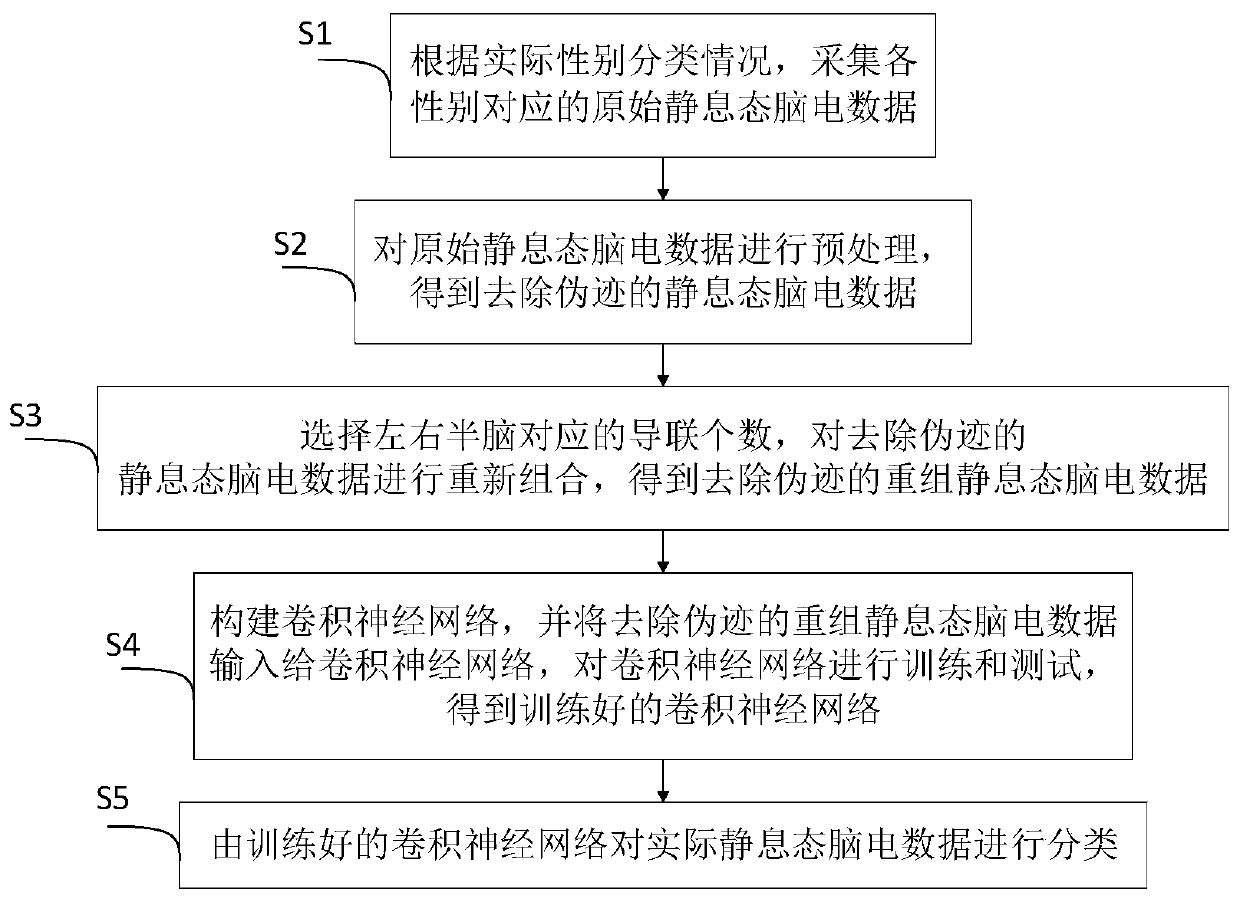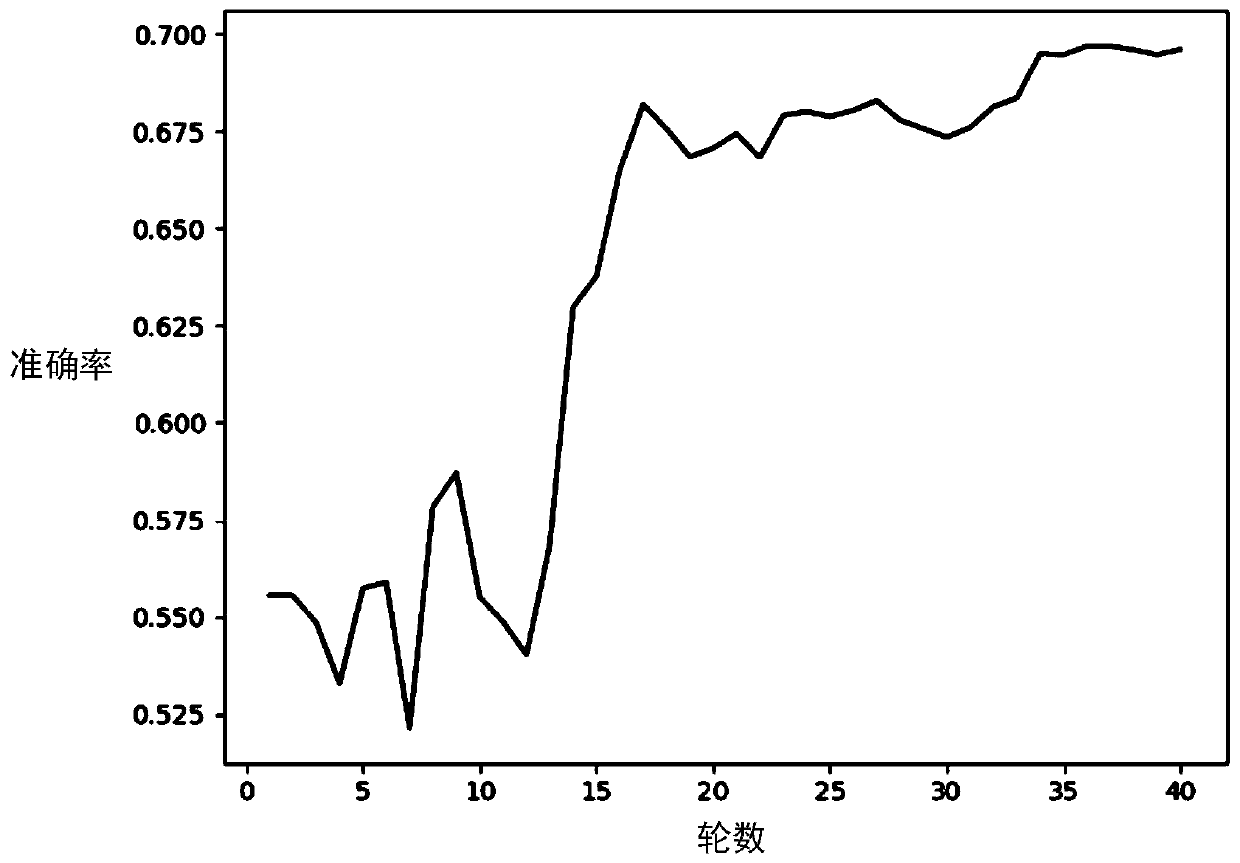Gender classification method based on resting EEG data
A technology of EEG data and classification methods, applied in the field of deep learning neural network and brain science, can solve problems such as difficult preprocessing, difficult filtering, and no standardized collection steps of EEG data, and achieve the effect of overcoming complexity
- Summary
- Abstract
- Description
- Claims
- Application Information
AI Technical Summary
Problems solved by technology
Method used
Image
Examples
Embodiment Construction
[0037] The present invention will be described in detail below in conjunction with the accompanying drawings and specific embodiments.
[0038] Such as figure 1 As shown, a gender classification method based on resting-state EEG data, including the following steps:
[0039] S1. According to the actual gender classification, collect the original resting-state EEG data corresponding to each gender;
[0040] S2. Preprocessing the original resting-state EEG data to obtain resting-state EEG data with artifacts removed;
[0041] S3. Select the number of leads corresponding to the left and right hemispheres, and recombine the resting-state EEG data with artifacts removed, to obtain the reconstructed resting-state EEG data with artifacts removed;
[0042] S4. Construct a convolutional neural network, and input the reconstructed resting-state EEG data with artifacts removed to the convolutional neural network, train and test the convolutional neural network, and obtain a trained conv...
PUM
 Login to View More
Login to View More Abstract
Description
Claims
Application Information
 Login to View More
Login to View More - R&D
- Intellectual Property
- Life Sciences
- Materials
- Tech Scout
- Unparalleled Data Quality
- Higher Quality Content
- 60% Fewer Hallucinations
Browse by: Latest US Patents, China's latest patents, Technical Efficacy Thesaurus, Application Domain, Technology Topic, Popular Technical Reports.
© 2025 PatSnap. All rights reserved.Legal|Privacy policy|Modern Slavery Act Transparency Statement|Sitemap|About US| Contact US: help@patsnap.com



